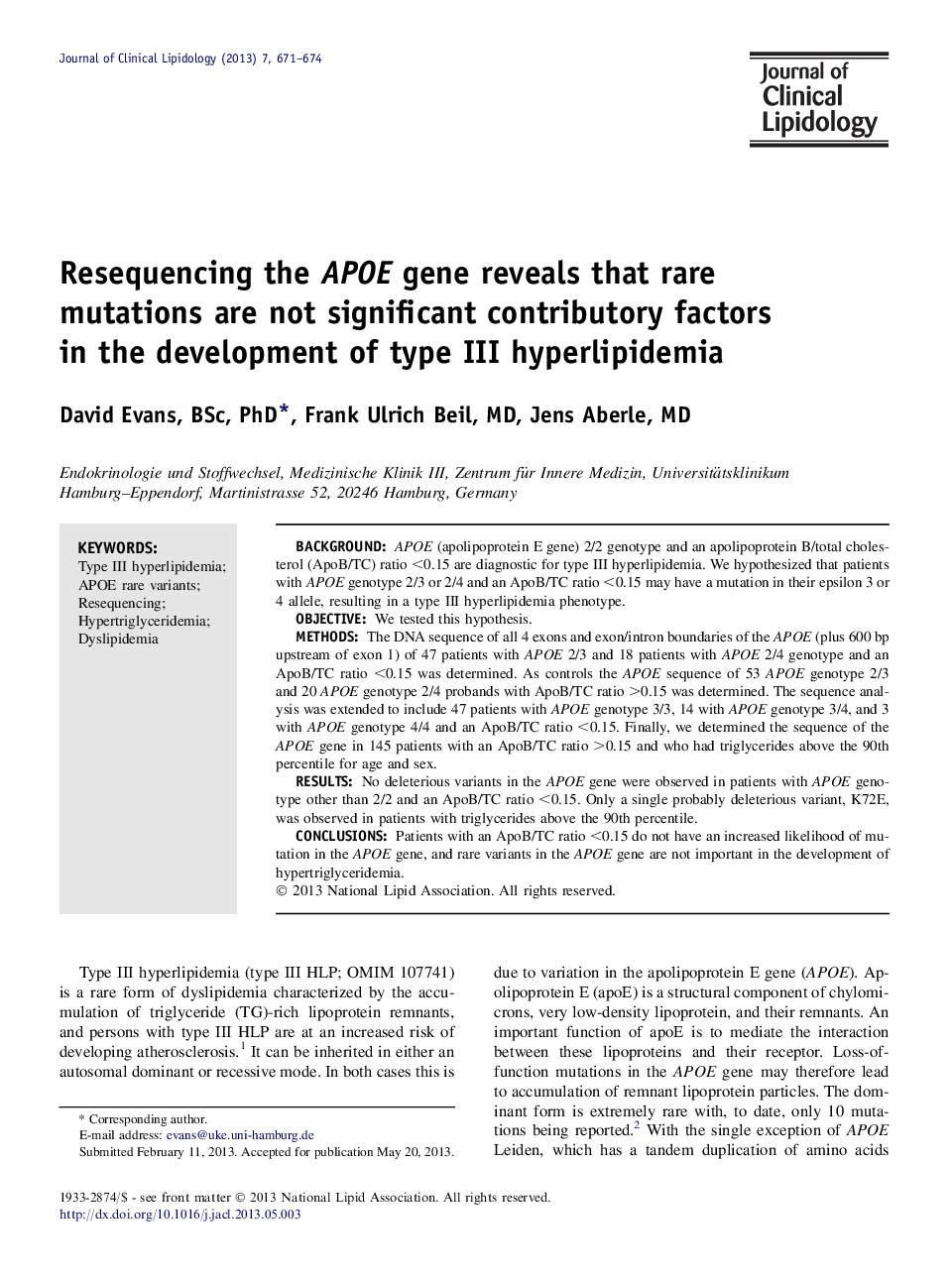| Article ID | Journal | Published Year | Pages | File Type |
|---|---|---|---|---|
| 2966191 | Journal of Clinical Lipidology | 2013 | 4 Pages |
BackgroundAPOE (apolipoprotein E gene) 2/2 genotype and an apolipoprotein B/total cholesterol (ApoB/TC) ratio <0.15 are diagnostic for type III hyperlipidemia. We hypothesized that patients with APOE genotype 2/3 or 2/4 and an ApoB/TC ratio <0.15 may have a mutation in their epsilon 3 or 4 allele, resulting in a type III hyperlipidemia phenotype.ObjectiveWe tested this hypothesis.MethodsThe DNA sequence of all 4 exons and exon/intron boundaries of the APOE (plus 600 bp upstream of exon 1) of 47 patients with APOE 2/3 and 18 patients with APOE 2/4 genotype and an ApoB/TC ratio <0.15 was determined. As controls the APOE sequence of 53 APOE genotype 2/3 and 20 APOE genotype 2/4 probands with ApoB/TC ratio >0.15 was determined. The sequence analysis was extended to include 47 patients with APOE genotype 3/3, 14 with APOE genotype 3/4, and 3 with APOE genotype 4/4 and an ApoB/TC ratio <0.15. Finally, we determined the sequence of the APOE gene in 145 patients with an ApoB/TC ratio >0.15 and who had triglycerides above the 90th percentile for age and sex.ResultsNo deleterious variants in the APOE gene were observed in patients with APOE genotype other than 2/2 and an ApoB/TC ratio <0.15. Only a single probably deleterious variant, K72E, was observed in patients with triglycerides above the 90th percentile.ConclusionsPatients with an ApoB/TC ratio <0.15 do not have an increased likelihood of mutation in the APOE gene, and rare variants in the APOE gene are not important in the development of hypertriglyceridemia.
